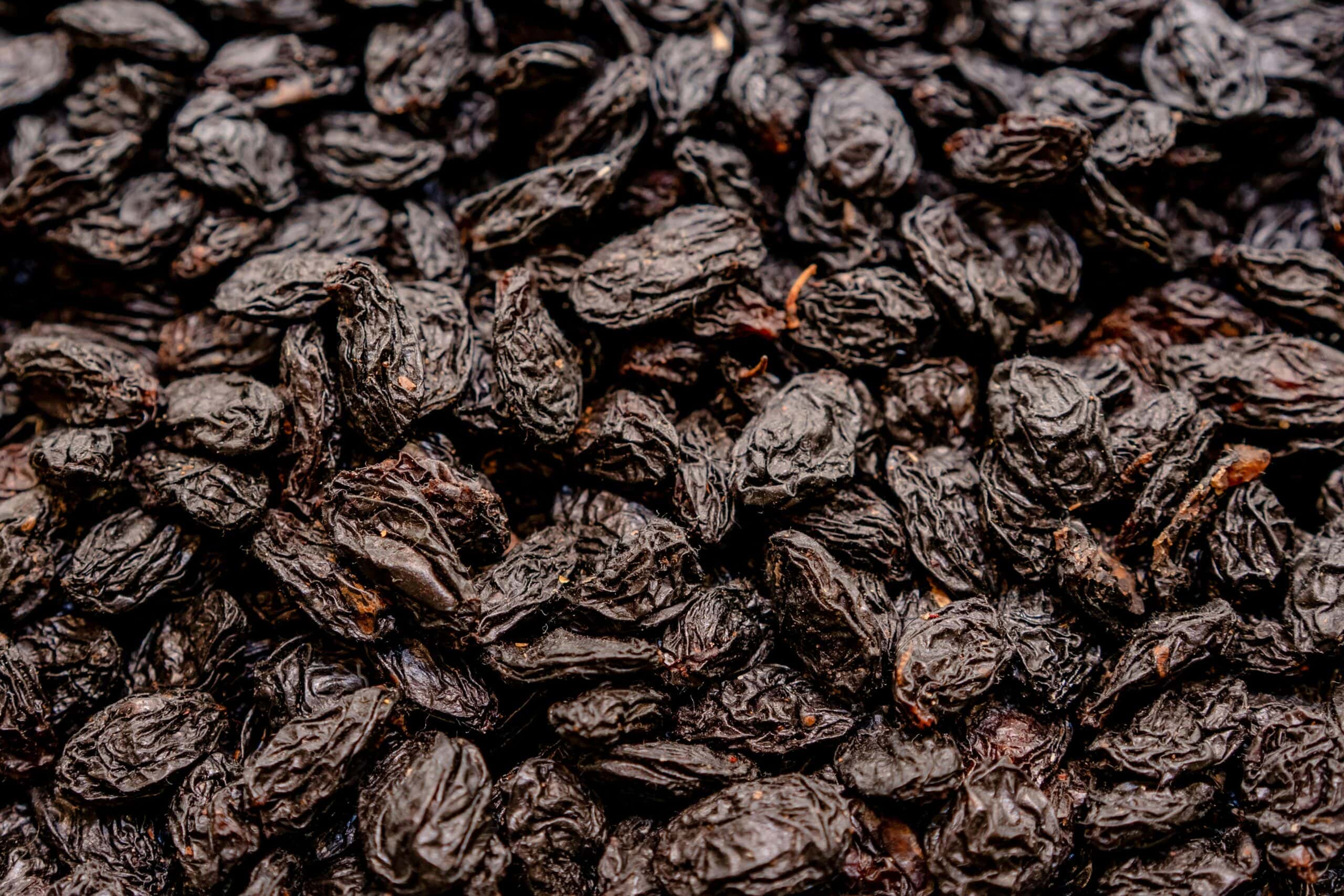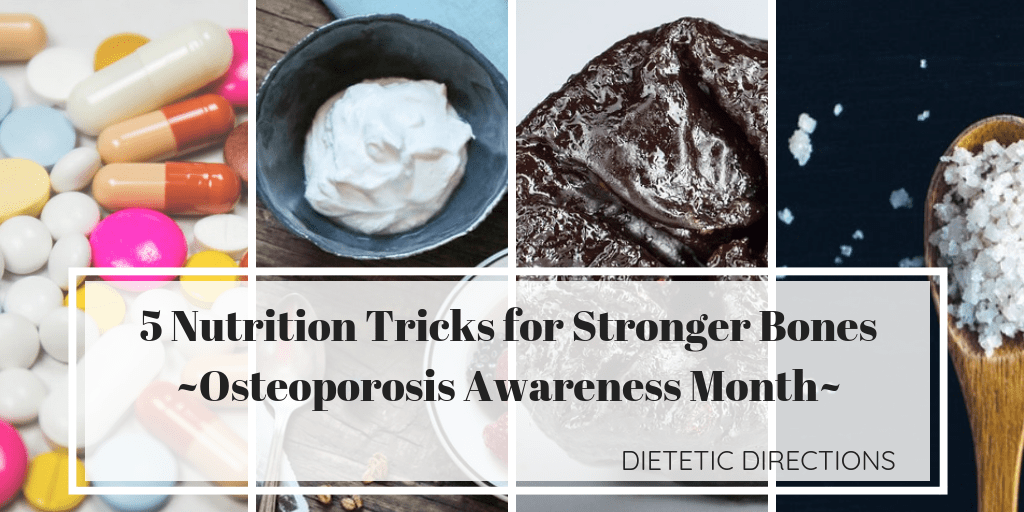
5 Nutrition Tricks for Stronger Bones
We all have bones; these living parts of our skeletons shape our bodies, protect our organs and attach to our muscles so we can move. However, we don’t often consider how our food choices impact our bones. In honour of Osteoporosis Awareness Month, I will reveal 5 Nutrition Tricks for Stronger Bones. These are scientifically-proven strategies you can implement right away.
This post was sponsored by the California Prune Board to showcase some of their research; however, all opinions are genuine.
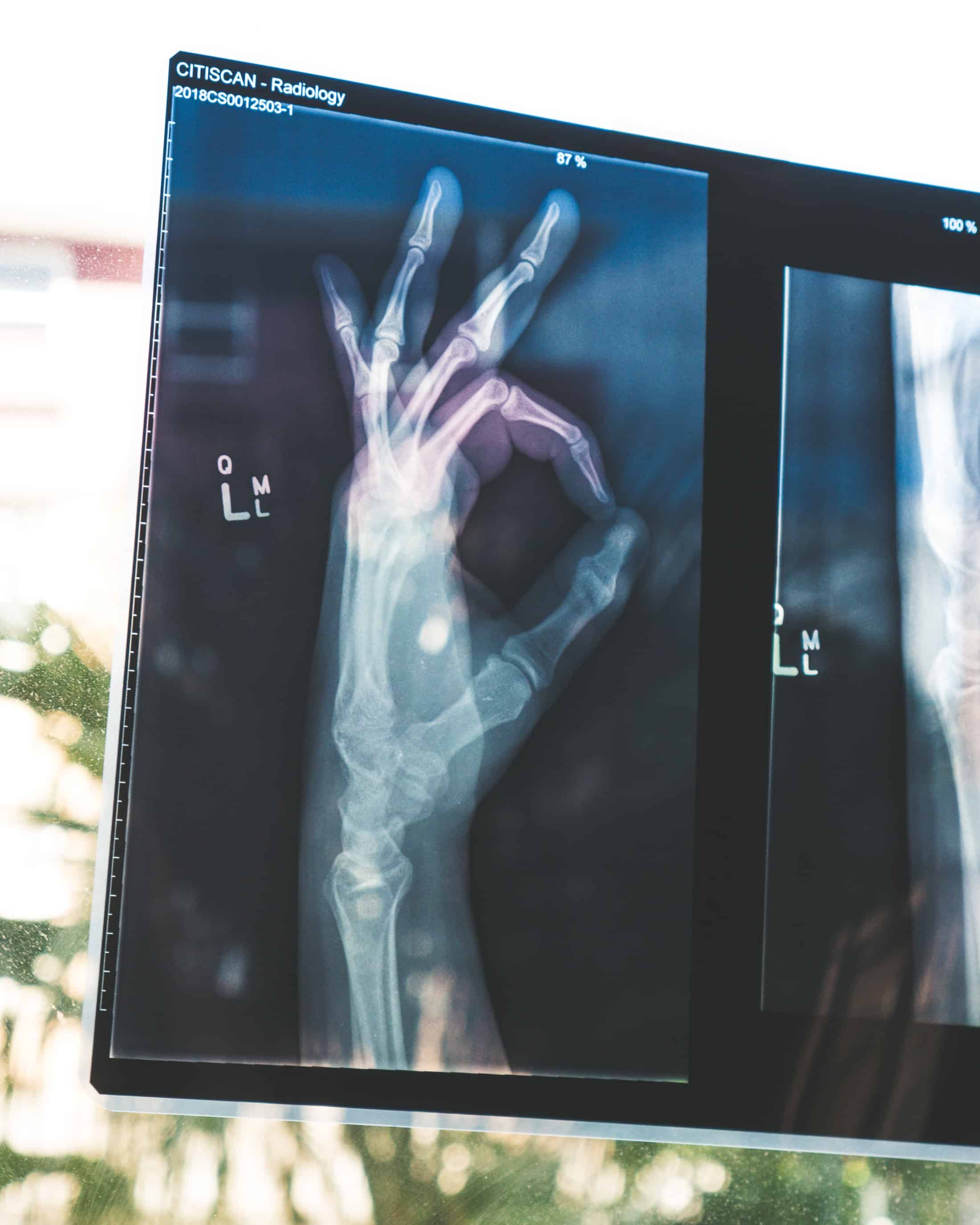
What is Osteoporosis?
According to Osteoporosis Canada, “Osteoporosis is a disease characterized by low bone mass and deterioration/weakening of bone tissue. This can lead to increased risk of fracture.”
Osteoporosis is known as the “silent thief” because bone deterioration occurs over a number of years without symptoms. A fracture is often the first sign of this quiet condition. All the more reason to get a bone density test, especially if you are at higher risk. Check here to find out if you are at higher risk for osteoporosis.
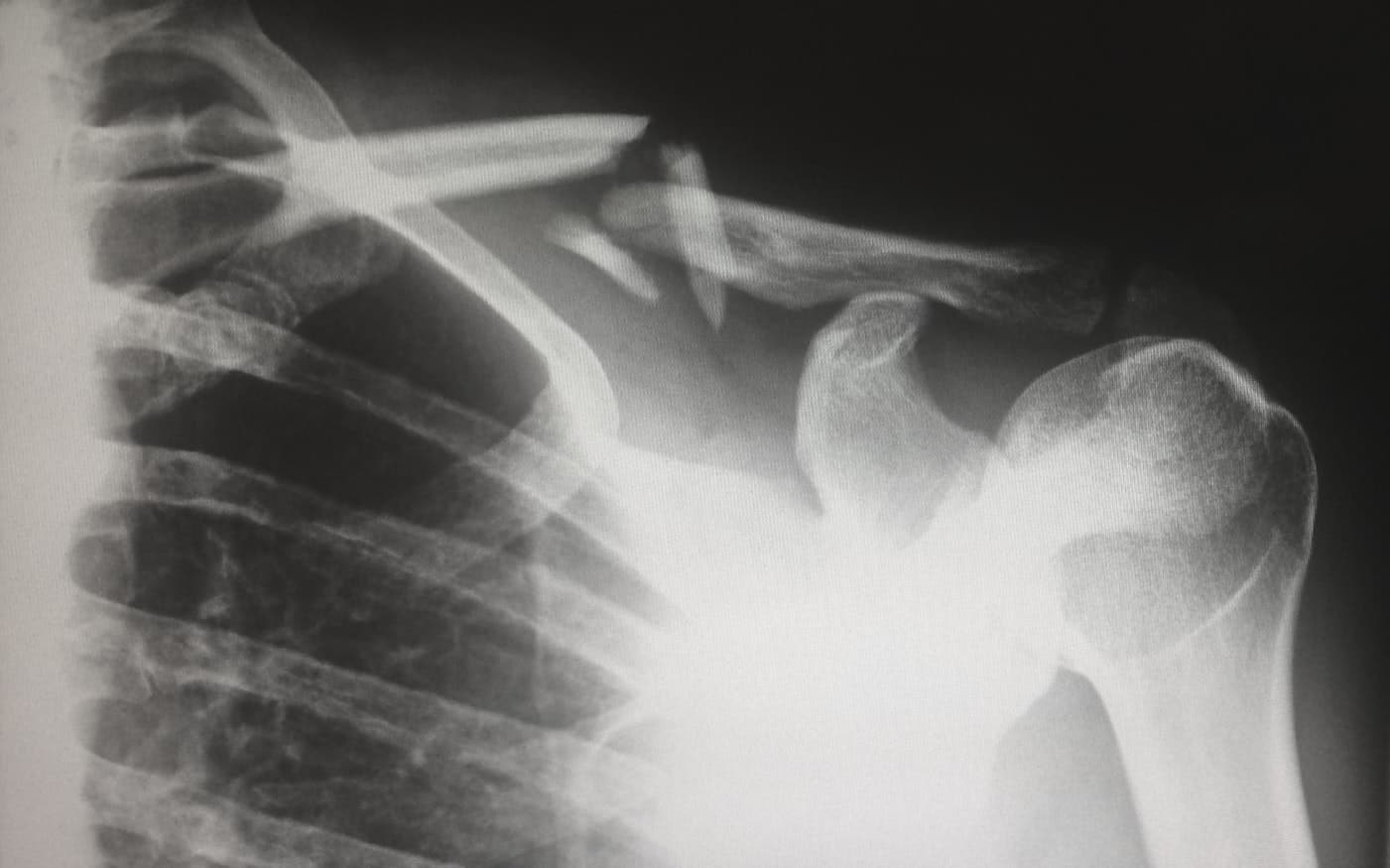
How Common is Osteoporosis?
- At least 1 in 3 women and 1 in 5 men will break a bone due to osteoporosis
- Osteoporosis affects 2 million Canadians
- Most common among Canadians 50 years of age or older

5 Nutrition Tricks for Stronger Bones
Here are my top 5 nutrition tricks for stronger bones. Keep in mind that if you had a fracture, osteoporosis is quite advanced, and with bone nutrition, we cannot “build” bone mass after our teenage years; however, we can maintain bone mass or slow the loss. All the more reason to use these strategies!
1. Vitamin D
Vitamin D, known as the “sunshine vitamin,” is important for strong bones and teeth because it increases calcium absorption. Without sufficient vitamin D, bones can become thin, brittle, or even misshapen, as in rickets in children.

This vitamin improves the functioning of our muscles, which can improve balance and decrease the risk of falls, which can cause fractures. I recommend that clients take a vitamin D supplement (specifically, vitamin D3 or cholecalciferol) year-round. Interestingly, even if we spend time outside in Canada during the fall and winter, we cannot synthesize vitamin D because of our northern latitude. Taking a supplement ensures adequate intake to meet dietary requirements. Our diets also tend to have insufficient vitamin D.
Other evolving research suggests that vitamin D may also benefit bone health by fighting infections, reducing heart disease, and preventing diabetes, multiple sclerosis, and some types of cancers (especially colorectal cancer). Research continues to be done in this field. Notably, vitamin D does not work in isolation for bone health; we also need to ensure we receive adequate supporting vitamins like magnesium, K2, and zinc. Speak with a dietitian if you are uncertain about getting enough vitamins and minerals to support bone health.

Groups at Higher Risk of Vitamin D Deficiency:
- Elderly – skin cannot synthesize vitamin D as efficiently
- Individuals with skin darkly pigmented with melanin are less able to make vitamin D from being in the sun
- Those with Crohn’s disease, cystic fibrosis, celiac disease, and some types of liver disease may not absorb enough of vitamin D

2. Prunes (a.k.a. Dried Plums)
Prunes are traditionally known to support bowel regularity (a source of fibre); however, new research published in Osteoporosis International shows that they also promote bone health! In fact, in this study, eating one daily serving (about 5-6 prunes) helped postmenopausal women prevent bone loss. This lowers the risk of osteoporosis. Additionally, a research review (of twenty-four different studies) found that prunes may positively affect bone mineral density and protect against bone loss.
DYK: One serving of California #Prunes may slow or prevent bone loss. #prunes4bones #EatCAPrunes #ad Share on XPrunes contain plant antioxidants (phenolic compounds) that signal cells to increase bone formation. These naturally sweet dried fruits are a good source of vitamin K, which is beneficial for bone metabolism and prevention against Osteoporosis. A daily serving of prunes is low calorie (only 100 calories).
#Prunes contain antioxidants that increase bone formation #prunes4bones #EatCaPrunes #ad Share on XDietary Suggestions:
- Eat California prunes as an on-the-go snack with a handful of nuts for protein (Tip: balance snacks with carb + protein for sustained energy). Click here to download Dietetic Direction’s 16 Energy Boosting Snacks!
- Add chopped prunes to salads for natural sweetness and flavour
- Include prunes in baked goods for a fibre boost; click here for more recipe ideas using prunes
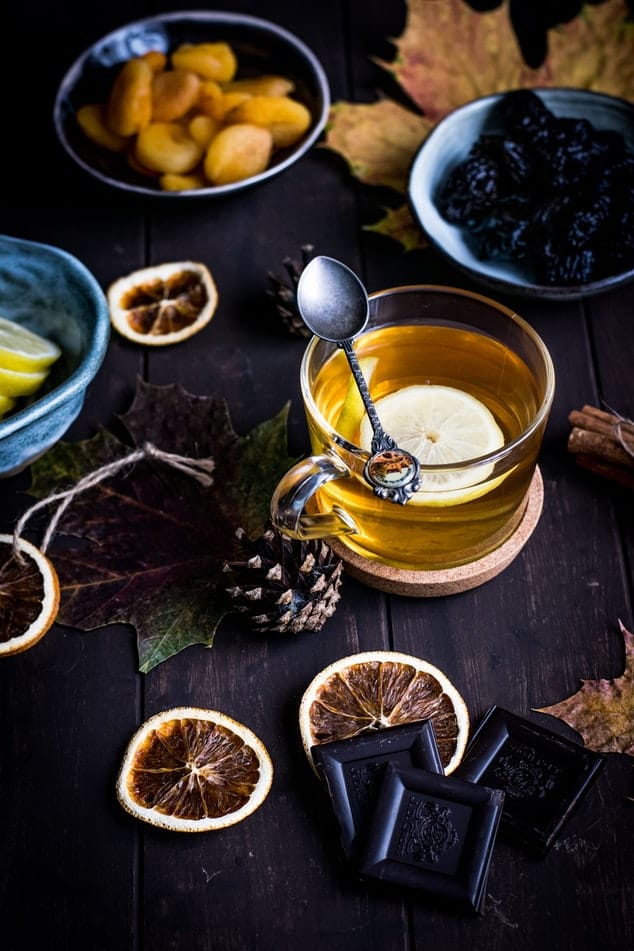
3. Get your Calcium
This one is still as important as ever because calcium strengthens our bones. Calcium is an essential mineral for building and maintaining our bones. Furthermore, our bones contain almost all of the calcium in our bodies. Since our bones are living tissue, they are constantly breaking down, releasing minerals, and depositing calcium to make new bones. This is why we want to ensure we’re meeting dietary calcium requirements. Find out about food sources of calcium here.
#Calcium builds & maintains #bones! Our body pulls calcium out of bones if intake is low. Find out if you’re getting enough! Share on XIf we don’t achieve adequate calcium through our diet (or supplements), our body pulls calcium from our bones to maintain calcium amounts in our blood and muscles. This makes our bones weaker and puts us at a higher risk for fractures. Speak with your dietitian if you do not know whether you meet your calcium requirements. Eating various recommended foods to suit your preferences can increase your calcium levels.

4. Limit your Salt
Most do not realize salt (or sodium) can negatively impact bones! In fact, sodium increases calcium loss, which is associated with low bone mineral density and an increased risk of fracture.
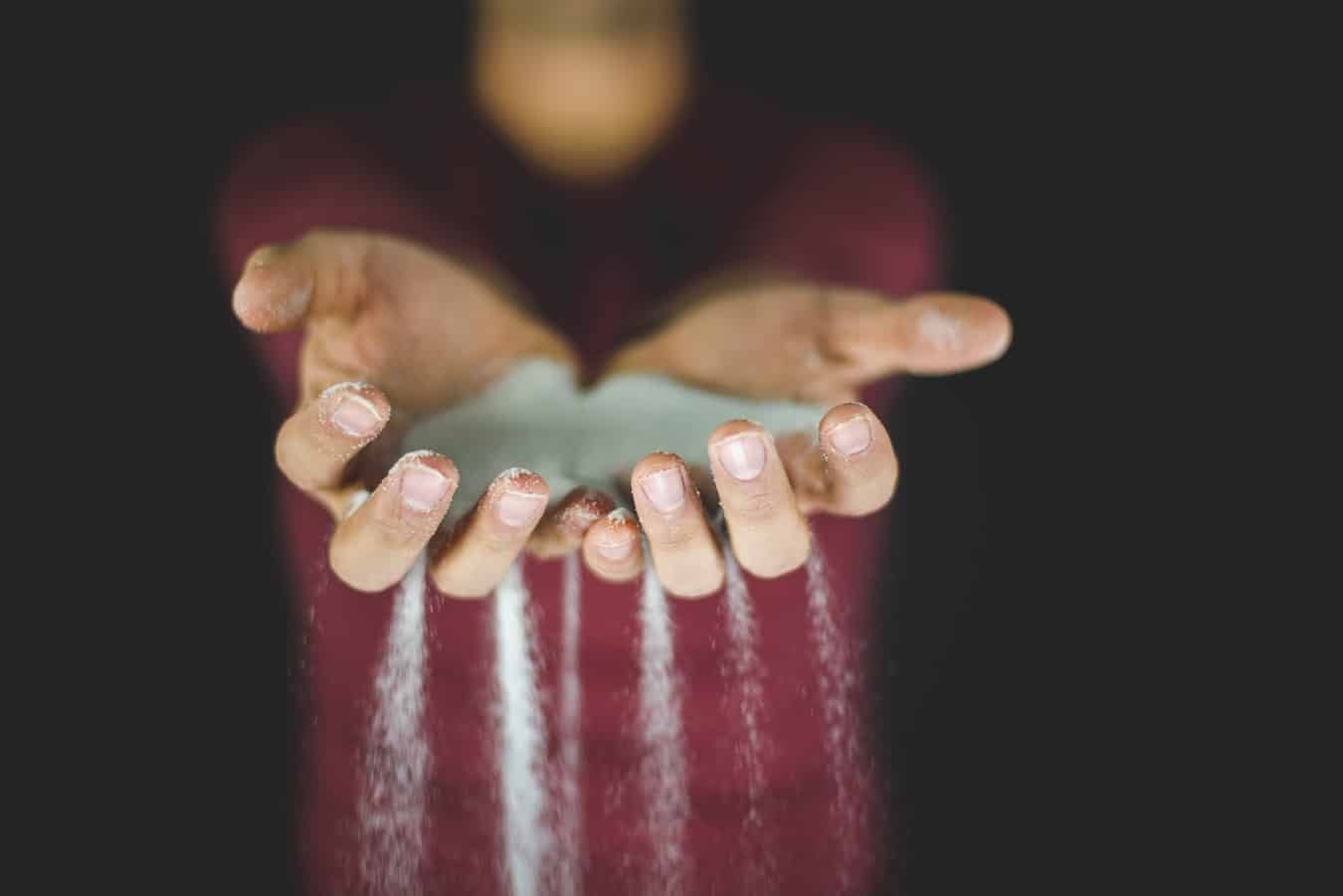
According to Health Canada, Canadians consume about 2,760 milligrams (mg) of sodium per day. That’s almost 2 times the sodium we need. Males tend to consume more sodium than females. Among males 14-30 years of age, over 90% consume excess dietary sodium. Yikes! That’s a lot.
Fact: Canadians consume almost 2X the upper limit of #sodium. #health #nutrition Share on XTips to Reduce Sodium:
- Limit eating out. Restaurant and processed foods contribute 80% of our salt intake
- Make your own soups using sodium-reduced or no-salt-added broth
- Boost dietary potassium such as bananas, pumpkin seeds and baked potato (more potassium sources here). This electrolyte helps to counter the effect of sodium by relaxing the arteries through the release of nitric oxide
- Look for foods that contain less than 15% DV (Daily Value) or less than 360 mg of sodium per serving
- Rinse canned beans or lentils to remove excess sodium
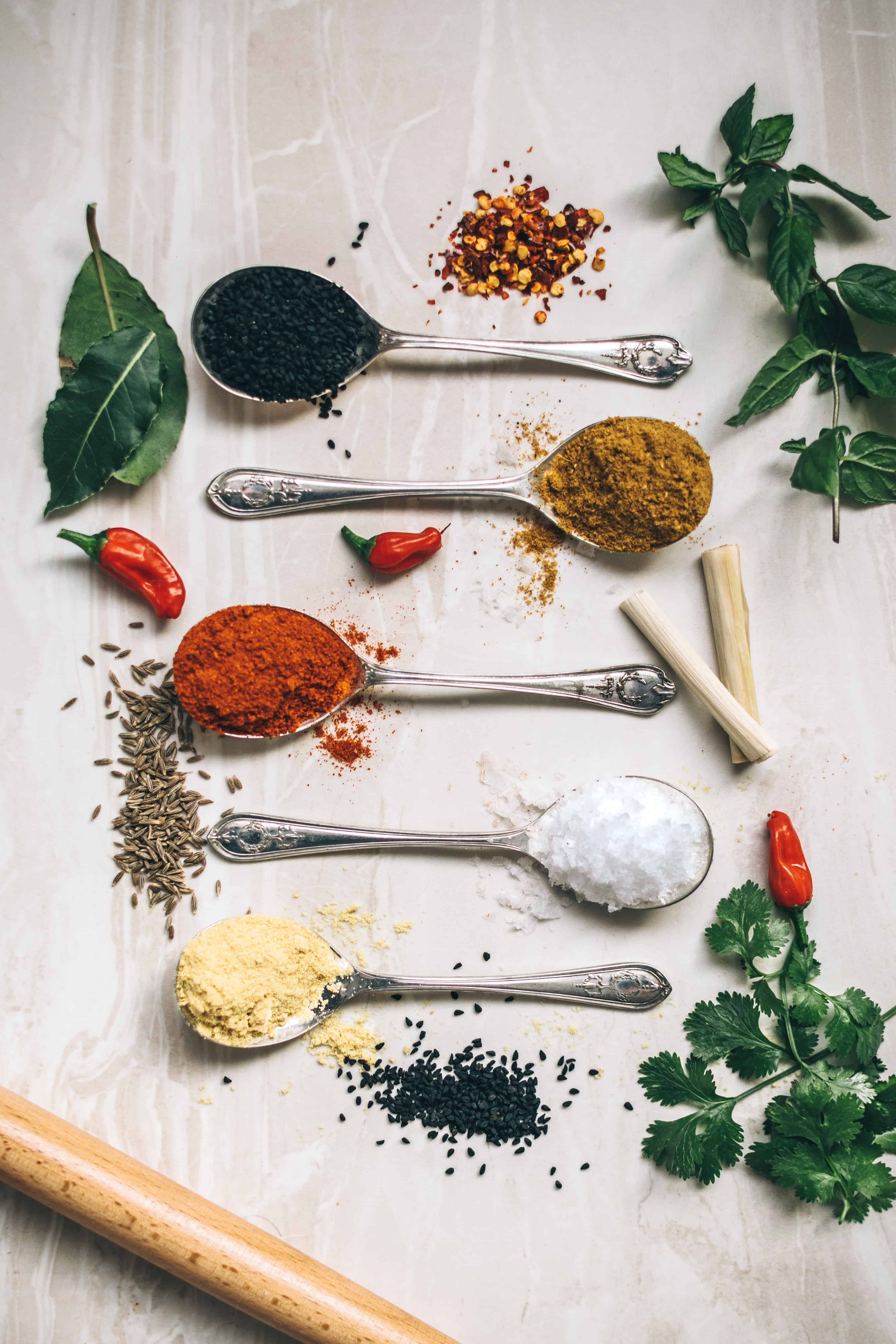
5. Vitamin B12 Supplement
A vitamin that often gets overlooked when it comes to bone health is vitamin B12. Vitamin B12 is largely associated with energy since it helps red blood cells carry oxygen. However, B12 also helps bone-building cells (called osteoblasts) function properly.

We mostly receive vitamin B12 in our diets through animal meat, dairy, poultry or fish. See dietary B12 sources here. However, it is estimated that 40% of individuals malabsorb vitamin B12, putting them at a higher risk for deficiency and compromised bone health.
DYK: #vitaminB12 helps bone-building cells! Are you getting enough? #dietitian #health Share on XHealth Canada recommends that those over 50 take a vitamin B12 supplement due to the increased risk of vitamin B12 deficiency. If you are uncertain if you are receiving adequate B12 in your diet, if you are at high risk for deficiency, or if you are experiencing symptoms of deficiency such as low energy, speak with your doctor or dietitian for blood testing and possible supplementation.
Bottom Line:
Our bones are essential to our health, and we want to keep them strong to prevent weakening and fractures. Be sure to try my 5 Nutrition Tricks for Stronger Bones. Boost vitamin D, enjoy prunes, meet calcium needs, limit sodium and ensure adequate vitamin B12. Start these strategies right away and continue them beyond Osteoporosis Awareness Month.
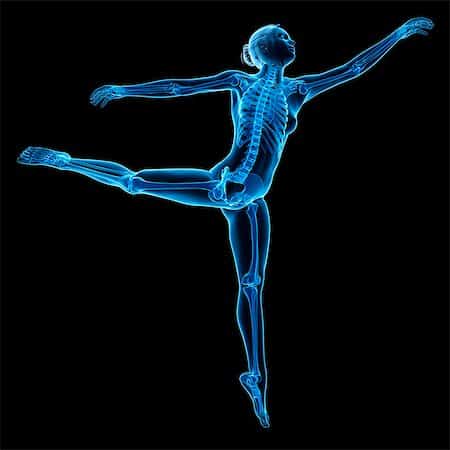
Now it’s your turn! What are your favourite foods that are good for stronger bones? Any favourite recipes or foods?


